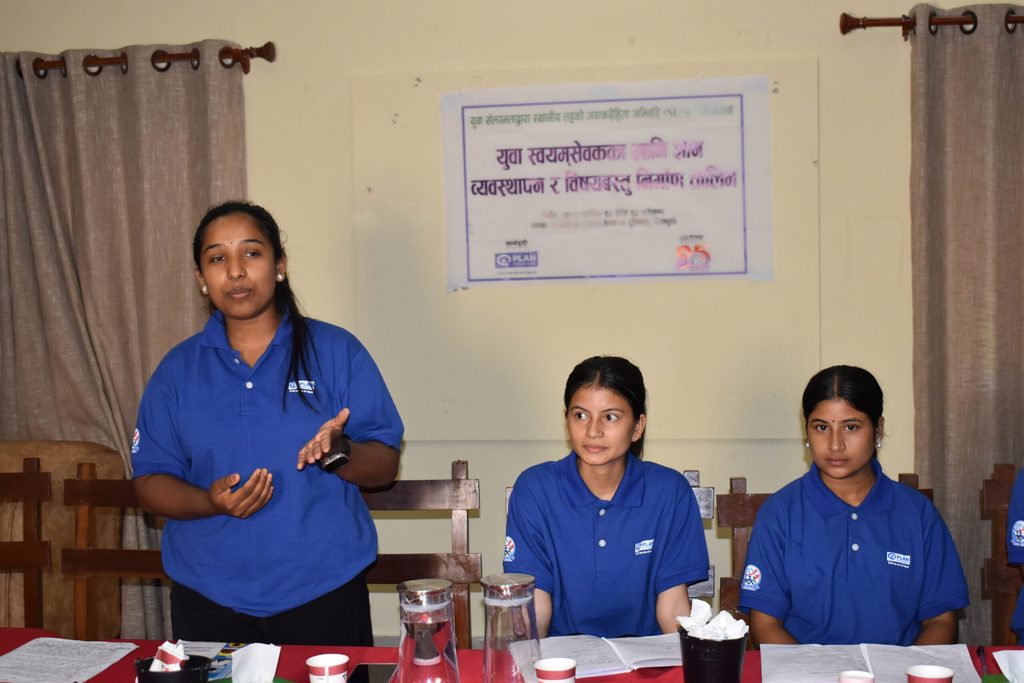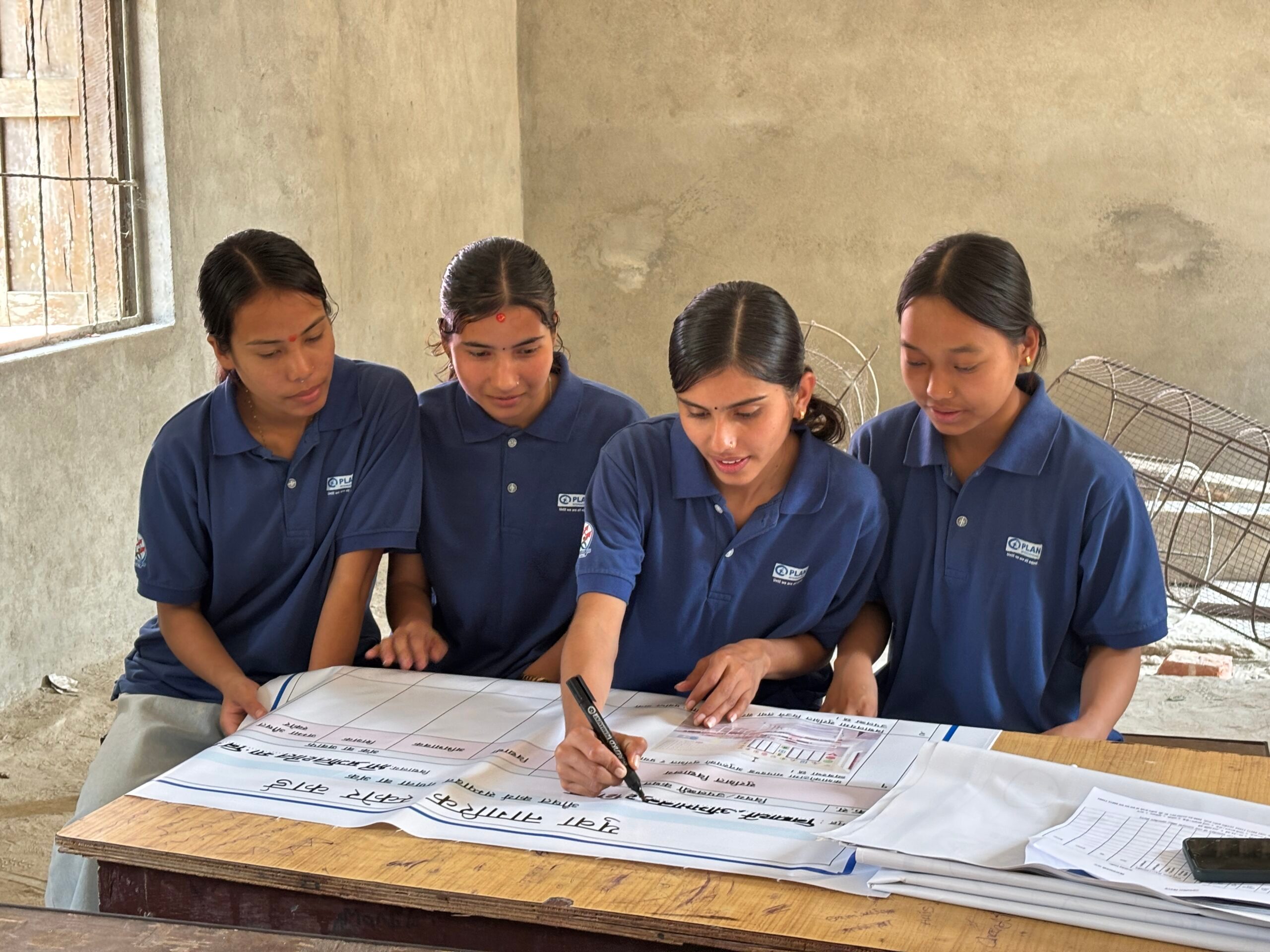Youth leader makes local authorities take action
Meet Tulasha, a passionate youth advocate transforming local issues into action in her community. By amplifying the voices of young people and empowering women in her community, she is making local authorities address community issues and promoting gender equality.

“If we want change, we must raise our voices, even when the world tells us to stay silent,” says Tulasha.
At just 21 years old, Tulasha is already a powerful agent of change in her rural community. Growing up as the eldest daughter in a family of five, she has long carried the weight of responsibilities, caring for her younger siblings, supporting her mother with household chores, and managing the household while her father works abroad.
Despite the expectations placed upon her and the widespread belief that girls should stay silent and not involve themselves in community matters, Tulasha dared to dream bigger. She wanted to be seen, heard, and to lead. She longed to create opportunities not only for herself but also for the young girls around her. Her ultimate dream: to become a social worker and drive meaningful change.
Opportunities for young women like Tulasha were limited, but she seized every chance to raise her voice and lead, demonstrating what is possible when young women claim their space in local decision-making.
Finding her voice
Tulasha had never participated in any formal youth activities. But deep down, she was always searching for the right platform to channel her passion for leadership. When she first came across a video about the Plan International Strengthening Local Accountability through Youth Engagement (SLAS) project on Facebook, showcasing young people demanding accountability from their local governments, she knew she had found her chance.
When the youth selection process began, Tulasha’s eagerness, dedication, and genuine interest in community development shone through. She was selected to join the project, a moment she describes as “a proud milestone in my life.”
“Being part of the SLAS project is not just about volunteering, it is about being heard, recognised, and respected. In a community where girls are often told to stay quiet, this platform gave me the strength to stand tall,” shares Tulasha.
Through SLAS, she attended intensive training sessions on leadership, public speaking, facilitation, safeguarding, planning, and content creation. These skills equipped her not only to participate but to lead critical community processes, especially using tools like the Youth Citizen Score Card (YCSC).
“Being part of the SLAS project is not just about volunteering, it is about being heard, recognised, and respected. In a community where girls are often told to stay quiet, this platform gave me the strength to stand tall.”
Tulasha, Youth volunteer

Building confidence and a gendered lens
In every session, Tulasha learned more than technical skills; she learned about her rights as a young woman and as a citizen. She gained a gender lens, helping her recognise and challenge the inequalities that had long been normalised in her community.
“The project taught me that when girls speak up, we don’t just change our lives – we change entire communities. I learned to look at every issue: education, health, and even road access, from a gender perspective. Who is being left behind? Who is being silenced? That’s the real question,” says Tulasha
She soon took on leadership roles within the project, facilitating community discussions, organising focus groups, and leading meetings between citizens and local authorities.
One of Tulasha’s proudest achievements was using the YCSC tool to identify critical issues in her community’s schools and health posts. Alongside her fellow volunteers, she conducted focus group discussions with students, parents, teachers, and healthcare staff.
They uncovered serious gaps:
- Dysfunctional computers in the computer labs, hindering students’ digital literacy.
- Poor management of science laboratory equipment is limiting hands-on learning.
- Health posts operating in cramped, partitioned rooms with no proper boundaries, risking the loss of valuable resources.
Using the YCSC process, Tulasha and her peers prioritised these concerns and prepared for an interface meeting where citizens and authorities came together to discuss and create an action plan.
“At first, it was difficult. People didn’t understand why young girls like me were asking questions. But slowly, with patience and respect, they began to see that we were serious, and that we had real solutions,” says Tulasha.
“At first, it was difficult. People didn’t understand why young girls like me were asking questions. But slowly, with patience and respect, they began to see that we were serious, and that we had real solutions.”
Tulsaha, Youth volunteer
She learned to adapt: simplifying complex terms, using visuals for easier understanding, and building trust one conversation at a time.
The result? Local authorities committed to fixing the broken computers, improving science lab equipment, and addressing infrastructural issues at the health post.
But for Tulasha, the real victory was not just the promises made, it was the transformation she witnessed in the people around her.
“One woman told me, ‘We always had problems, but never had a way to speak about them. You gave us that chance.’ That moment will stay with me forever,” says Tulasha.
Shaping a brighter future
Today, Tulasha continues to champion the voices of young people, especially girls. She understands that real change starts by empowering those who are often overlooked. She hopes her journey will inspire more girls to stand up, speak out, and lead.
“It’s not about how many places I reach. It’s about how deeply I connect with the people in my community. That’s where true change begins,” shares Tulasha
Through projects like SLAS, Plan International Nepal is helping young leaders like Tulasha rewrite the future; one voice, one action, one community at a time.


